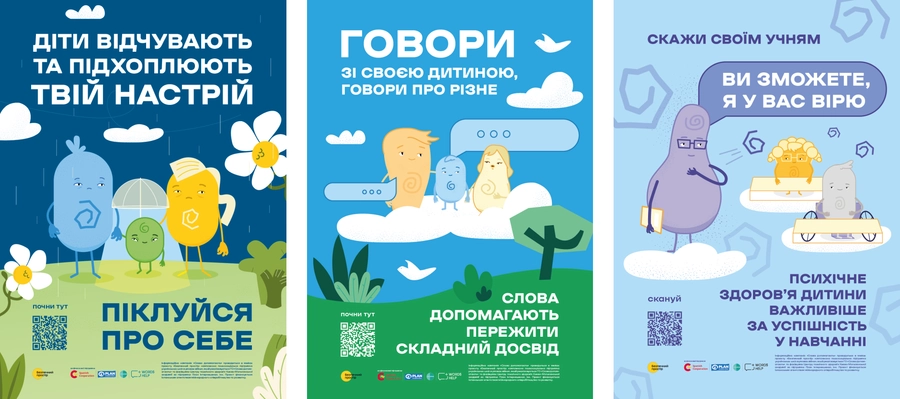For 10 years, the “Safe Space” program specialists have been training teachers, parents, and school psychologists to help children.
What is the uniqueness of the “Safe Space” program?
JOIN US ON TELEGRAM
Follow our coverage of the war on the @Kyivpost_official.
Our program was launched in 2014-2015, when children in the east heard first explosions, saw military equipment and violence. We were approached by the Ministry of Education and Science and UNICEF to develop a program that would help children and support teachers and psychologists who were severely burned out in such conditions. And so we did.
We train educators to create emotionally supportive spaces at school and help students with symptoms of psychosocial stress. We also help psychologists and teachers themselves. If they feel cared for, they will have the resources to take care of children. The result is a multi-level program that we are constantly improving. In two years, we have trained about 8,000 teachers and more than 400 psychologists.
What are the challenges to children's mental health now?
Children and adults are constantly faced with losses and threats to life. Such conditions contribute to the deterioration of the psychological state. We are currently running an info campaign called “Words Help”. The animations and posters we have developed for teachers and parents explain children's reactions to stress and offer tips on how to support them while preserving limited resources.

You recently presented the results of your research within the “Safe Space” program. What impressed you the most?
As a result of the program implementation we see an improvement in the well-being of 57% of teachers and a significant reduction in the level of PTSD symptoms in 91.3% of children aged 8-10 and 75.2% of aged 11-16.
It is impressive that the work of psychologists and teachers proved to be effective despite the very difficult conditions. Some people lived in the occupied territories or in areas of active hostilities during the training. Nevertheless, we managed to reduce the level of emotional burnout among teachers, and they began to engage children in learning better.
Do you have any new ideas for cooperation?
We need to work with communities directly, as they are the customers and are interested in educating teachers. We offer a curriculum for local professional development centers for teachers approved by the Ministry of Education. We also have psychotherapy programs for adults that may be of interest to the Ministry of Health.
What are your plans for the program in 2024?
We’d like to scale up the training of psychologists in the frontline regions of Ukraine, as children there need more support. We’d also like to work more with communities where there is a Center for Professional Development of Teachers to launch the program on the ground. We keep in mind Ukrainian children who are temporarily abroad. For the past two years, we have been cooperating with the Moldovan education system: we have taught trainers there who can coach teachers and work directly with children. We prepared 50 trainers for the program, developed a set of methodological materials, an online course, and have a resource for supervisory support for teachers. This allows us to quickly scale up the program and strengthen the mental health of participants in the educational process. We are open to cooperation with organizations interested in supporting mental health in education.
The "Words Help" information campaign is part of the project "Safe Space: Comprehensive Psychosocial Support for Ukrainian Schools in Times of War," implemented by the NGO "Words Help" and specialists from the Mental Health Center of the Kyiv Mohyla Academy with the support of Plan International. The project is funded by the Spanish Agency for International Cooperation and Development (AECID).
You can also highlight the text and press Ctrl + Enter




